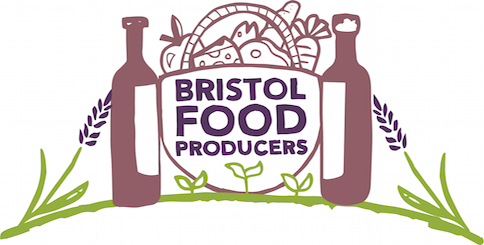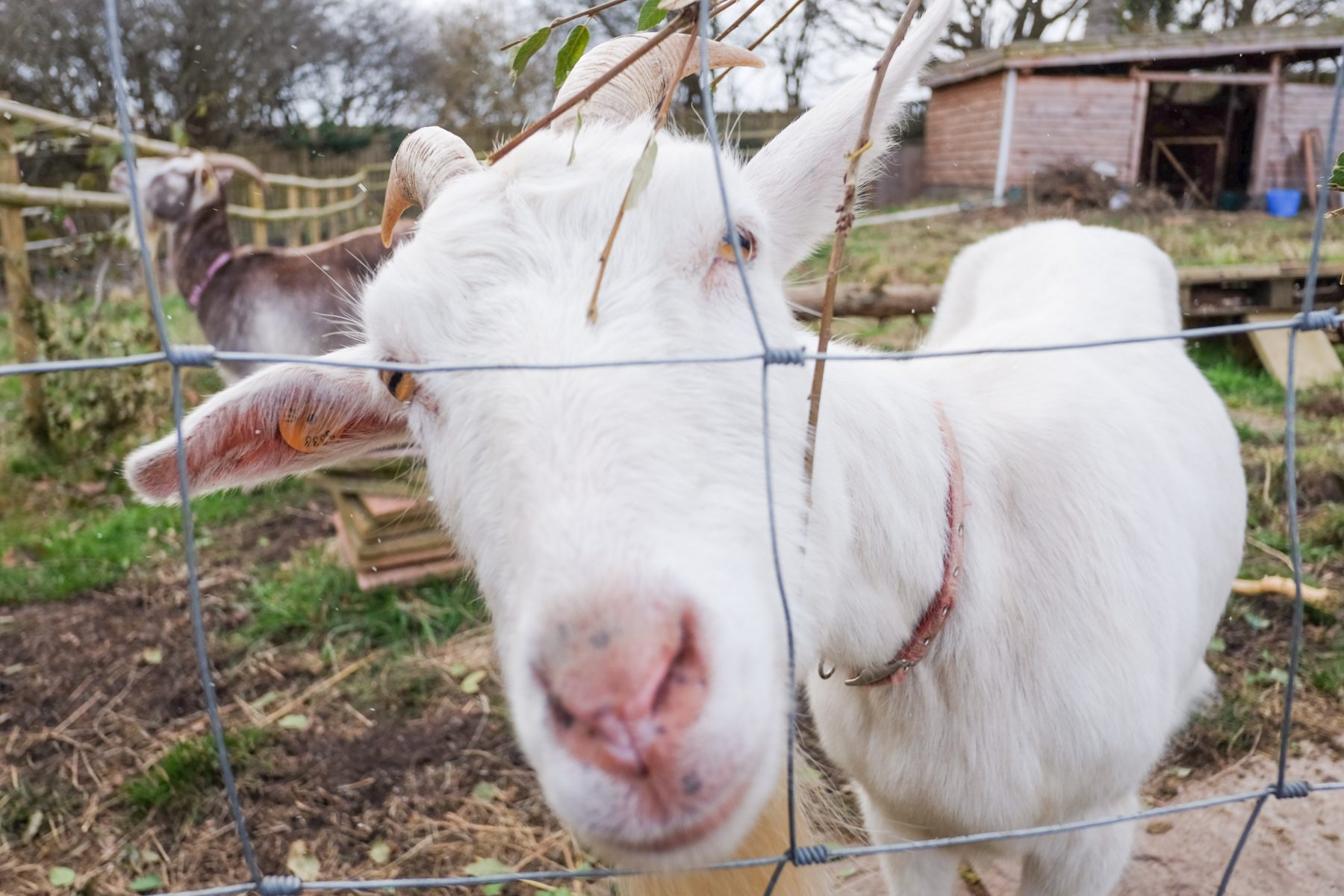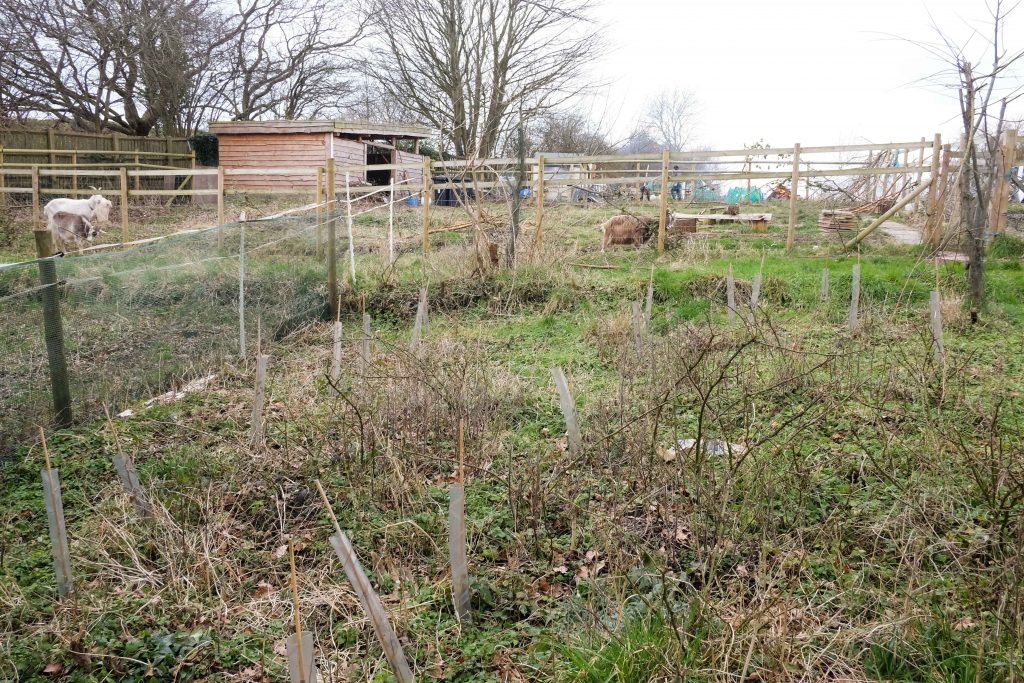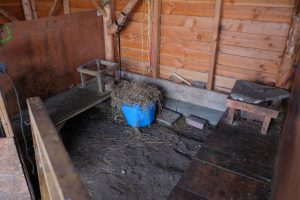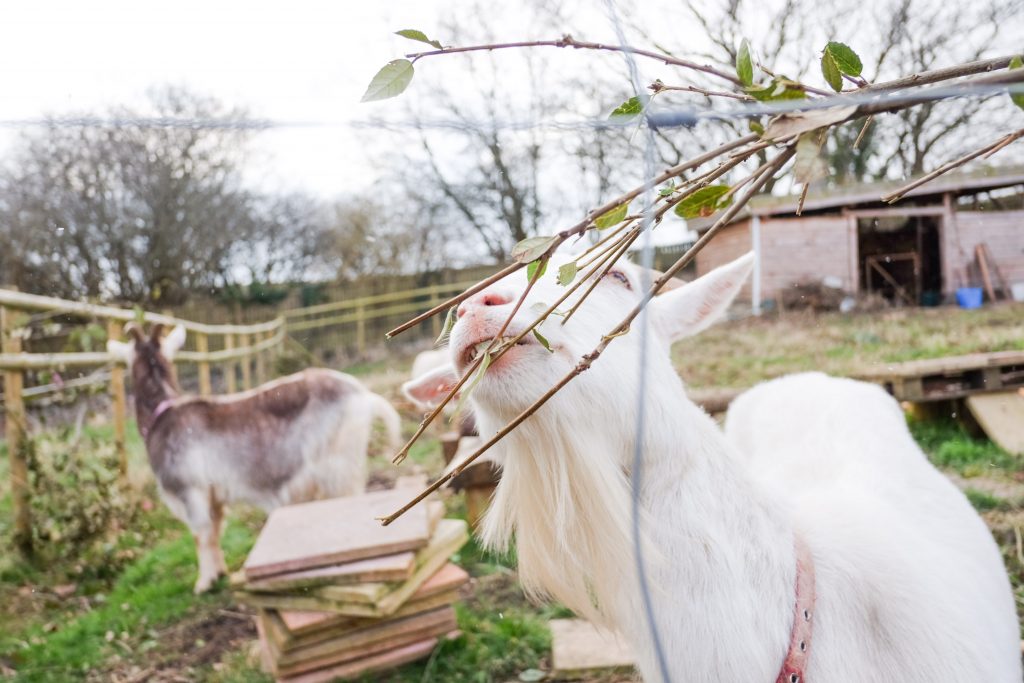Nestled amongst some allotments in Troopers Hill in East Bristol, a group of people are collectively keeping goats in the city. Two years ago, a crowdfunding campaign raised the initial funds of £9000 necessary to build a milking shed, invest in fencing and generally get the project off the group. Two of the people there from the start were Carol and David Laslett; “I always wanted to keep goats,” Carol explains before pausing, “Though I hadn’t quite unpacked what that meant!” she finishes, laughing.
Two years later and the project is going from strength to strength. An established and committed team work together to look after the animals. “Doing it cooperatively means you share the responsibilities,” Carol explains, talking through how they divide up the milking slots each week and share in the daily work of mucking out, changing water and feeding the goats. There are currently 15 people involved in the milking, and Carol reckons they support 13 family/individual units with the milk the goats produce (currently the two goats that they are milking produce a total of about 2 litres each milking). “I’d like to see four in milk at any time,” Chris explains, another volunteer who has been involved with for the last year, telling me that the other two female goats are currently pregnant.
The allotment site has three fenced areas that the goats rotate between, with the group working hard to clear a fourth area at the moment – the site was overgrown and full of rubbish when they took it on, and they have spent the last two years working to clear it. They’ve also planted lots of trees on the site; “Goats are browsers, not grazers,” David explains. “They won’t eat food off the ground,” he points out before telling me that woodland is an ideal location for goats. They’d love some more land to graze the goats on– currently they collect branches and pin them into the fences to help supplement their diet and give them proper opportunity to feed in as natural a way as possible.
As well as the female milking goats, the group have also raised the male offspring, initially using them to clear overgrown allotments, then buying castrated males goats (known as wethers) as “waste” from diary farms. These goats are used for conservation grazing on overgrown land, restoring important habitat for wildlife such as rare butterflies and slow worms. One of these sites is Goblin Combe, where Avon Wildlife Trust provide and maintain fencing, Street Goat provide the goats. Also working with South Glos Council , this year on two sites they train up local volunteers to look after animals. “It’s more like conversation grazing,” David jokes, explaining how people loving chatting about it when they hear about the project. The male goats are then butchered for meat and the meat sold – the group have also run workshops on butchering and tanning to help people learn new skills.
“There’s lots of problem solving,” Carol explains as she walks me around the site and introduces me to the girls; Boudica (or Bou), Lana, Flora and Lilly; talking about escapees and illness. Her love of the goats shows that it’s all worthwhile though. She talks me through their future plans – they’ve love to start another milking operation elsewhere in the city, and continue their conservation grazing projects, although additional funding would help scale up that side of the operation.
Want to get involved with Street Goat? Keep an eye on their facebook page for more info. They currently have a long waiting list for milking members, but they have monthly work days that is a great way for people to get involved. If you’re interested in buying meat next time they butcher some kids, email Carol to find out more.
